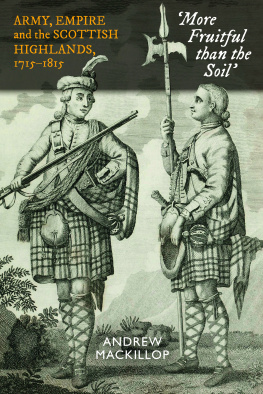First published in 1908 by Methuen & Co. Ltd.
This edition first published in 2018 by Routledge
2 Park Square, Milton Park, Abingdon, Oxon, OX14 4RN and by Routledge
711 Third Avenue, New York, NY 10017
Routledge is an imprint of the Taylor & Francis Group, an informa business
1908 by Taylor & Francis
All rights reserved. No part of this book may be reprinted or reproduced or utilised in any form or by any electronic, mechanical, or other means, now known or hereafter invented, including photocopying and recording, or in any information storage or retrieval system, without permission in writing from the publishers.
Publisher's Note
The publisher has gone to great lengths to ensure the quality of this reprint but points out that some imperfections in the original copies may be apparent.
Disclaimer
The publisher has made every effort to trace copyright holders and welcomes correspondence from those they have been unable to contact.
A Library of Congress record exists under ISBN: 9031734
ISBN 13: 978-1-138-60331-8 (hbk)
ISBN 13: 978-1-138-60333-2 (pbk)
ISBN 13: 978-0-429-46197-2 (ebk)
A HISTORY OF GERMANY
1715-1815
Preface
THIS work is the outcome of an effort to produce within moderate compass some account of the affairs of Germany between the Peace of Utrecht and the final overthrow of Napoleon. In view of the dimensions to which the volume has attained I can hardly claim to have been successful in the task of compression, but I am more conscious of shortcomings in omitting things which ought to have been included than of having dwelt at excessive length on those aspects of German history with which I have endeavoured to deal. It may indeed be urged that the character of the subject must bear some share of the responsibility for the length to which the book has run. Germany between 1715 and 1815 was not a nation with a well-defined national life and history, but was merely a chaotic collection of states with conflicting aims and ideals, constantly engaged in struggles with one another; there can be no history of Germany as a whole, because, as this book endeavours to show, there was hardly anything that could be called "German"; particularism and localism were infinitely stronger than any unifying or centralising tendencies. But one has not merely to follow the fortunes of the principal portions of this infinitely subdivided "geographical expression," the struggles of these various members are so completely merged in the international history of Europe as a whole that the affairs of Germany only become intelligible, if at all, when narrated as part of the history of all Europe. It is no exaggeration to say that Russia, Turkey, Great Britain and above all France play more prominent parts in German history in these years than do some German states of quite respectable size. Thus one cannot neglect battles fought outside Germany by the troops of German states; Marengo and Arcis sur Aube are quite as much part of German history as are Leuthen and Wagram, while the otherwise abortive victories of Prince Charles Edward in " the '45 " helped to transfer Silesia from the Hapsburg to the Hohenzollern and thus profoundly affected the course of German affairs for over half a century. Thus, then, when one attempts to narrate the history of Germany from the death of Louis XIV to the overthrow of that other great enemy of Germany, Napoleon, one finds one's self committed to relating the course of European affairs so far as they took place in or immediately affected Germany, a very much more lengthy process than that of narrating the development of one country only. But it must also be remembered that while these affairs for the most part took the shape of wars or rumours of wars, military matters must be treated at some length if they are to be in the least intelligible. Indeed I am afraid that in the effort to compress my accounts of campaigns and battles I have failed not only to be succinct but even to be reasonably clear and, still worse, that I have made statements which need more expansion and justification than they have been given, and have pronounced verdicts without a sufficient setting forth of the grounds on which I have formed my conclusions.
In deliberately choosing the military aspect of German affairs as the feature on which to lay most emphasis, I am aware that I have hardly touched upon the intellectual and literary life of the period. However, I have omitted this side advisedly, feeling convinced that it was in the main a thing apart, which affected the life of the country as a whole but little and certainly had hardly any effect on the politics of Germany. The "Potsdam Grenadiers" are more typical of eighteenth-century Germany than are Goethe and his fellows. It was only quite at the end of the period, in the days of the War of Liberation, that German literature can be really called "German," that it ceased to be merely cosmopolitan and became national. Considerations of space must be my apology for the inadequate treatment of the social state of the country; when there is so much to be included something must be left out, and in preferring to dwell on the military history of the period I have taken the aspect of the subject which appeals to me most and with which I feel least incompetent to deal.
The appended lists of authorities do not of course make any pretensions to be exhaustive bibliographies: the first gives the names of the principal books from which I have taken my information, the second of some books to which I would refer any one who wants more information on particular points than is here given. Other references will be found from time to time throughout the book to other works which I have consulted less frequently or on special points. Some books (indicated by an asterisk) which appear in both lists have been published since the manuscript of the book was first completed, now some time ago, for unforeseen difficulties have caused considerable delay in the appearance of the book. I have thus not been able to utilise several volumes which might have been very helpful. Before leaving the subject of authorities I should like to make special acknowledgment of my indebtedness to two works, Dr. Ward's England and Hanover and Mr. Fisher's Napoleonic Statesmanship: Germany , the first of which I have found exceptionally useful when dealing with the attitude, not as a rule very rightly represented, of England towards Germany in the first half of the period, while Mr. Fisher's book I found peculiarly illuminating on a subject on which the German authorities I had utilised were copious rather than clear.
Further, I must plead guilty to what I believe to be generally looked upon as the perpetuation of a vulgar error, my adherence to the incorrect form "Hapsburg" in preference to "Habsburg," and my preference for such forms as Cologne, Mayence and Ratisbon. Strictly speaking they are no doubt incorrect, but I prefer to use the forms to which I am accustomed.
Finally, I should have liked to have included a good many more maps and plans, but of such things only a limited number can be inserted, and when the requisite things are to be found in the Clarendon Press Atlas and in M. Schrader's Atlas de Geographie Historique it would be merely superfluous to have given such maps as "the Development of Prussia"; I have therefore preferred to increase the number of plans of battles.











